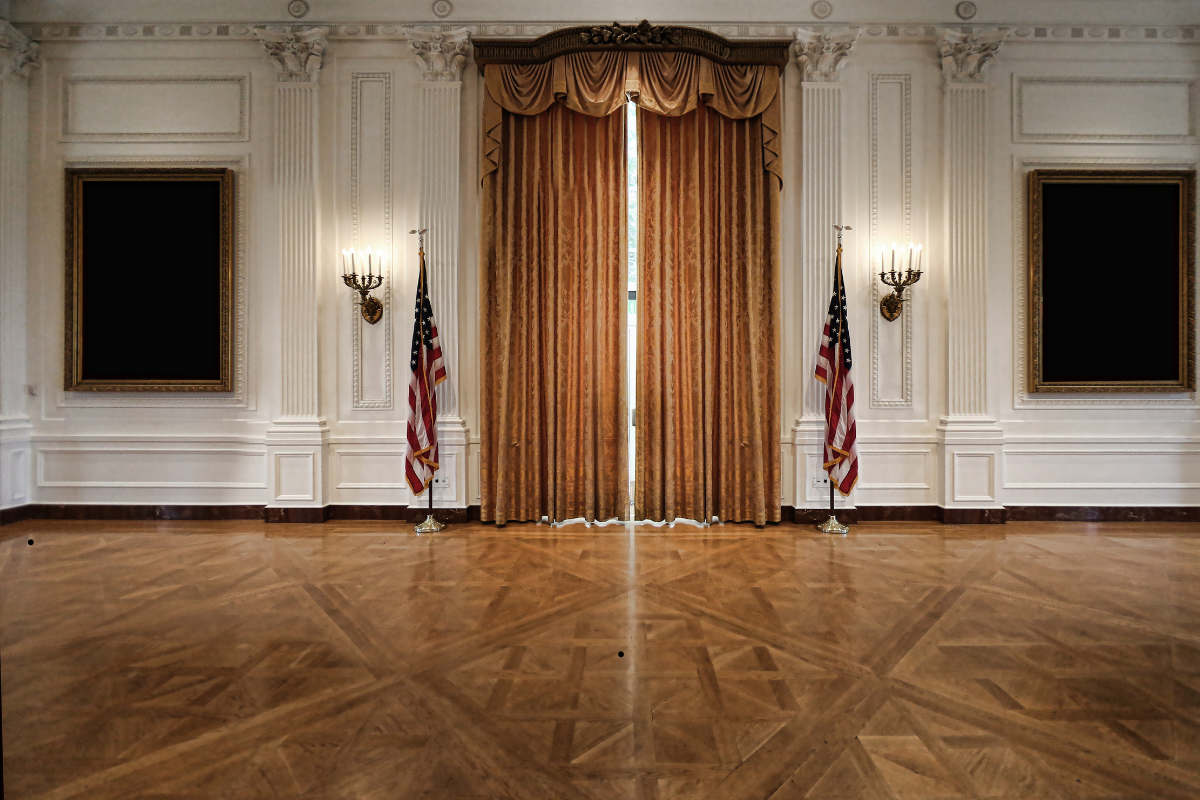Federalist 45
Publius often blurred the line between hortatory and argument. Thinking he had slam-dunked the Anti-federalists on the “necessary and proper” and “supremacy” clauses, Publius crowed about how the Constitution satisfied the passions and interests expressed in the Revolution. Madison reminded readers that union and a stronger national government were both a means to the same end: “the happiness of the people.”
The problem with “happiness” is that it admits of different meanings and that its not always easy to adjudicate the best path to any individual person’s happiness. We typically take “happiness” the mean “an individual sense of psychic pleasure.” Contrariwise, the classics took “happiness” to be a mode of discipline and duty that resulted in the full flourishing of the person. Subjective states were fleeting and no guide to human well-being.
As tricky as the question is at the individual level it bedevils at the collective one. Of what, exactly, does the “happiness” of “the people” consist? Material well-being? Security? Unity? Peace? Probably the clues are given in the preamble to the Constitution, but even then the vagueness of the ideas are brought into relief against the limited and specific means of accomplishing them.
Madison took the argument a step further. The happiness in question attached only to the union and not to whatever allegiances people felt to their states; or, for that matter, that the states might retain their sovereignty. In so far as the sovereignty of the States could not be reconciled to “the happiness of the people” the new plan insisted that “the former be sacrificed to the latter.” But, he continued, the sacrifice was not completely necessary. “The operations of the federal government,” he hopefully insisted, would not “prove fatal to the State governments.” Comparing the union under the proposed Constitution to the confederations of the past, Madison observed that the confederating parties always retained enough of their sovereignty that their individual interests ultimately prevailed. Why wouldn’t that be the case in America? And the main reason for that would be that “local sovereignties” would continue to possess “the affections of the people.” Therefore, the states would be more likely to frustrate the measures of the federal government than the other way around.
How the states could frustrate the federal government
Madison did not consider this merely as an abstract possibility. Since the states predated the Constitution, and since the Constitution was a creation of the states, the new government would continue to depend on the states for its existence and operations. The states were essential to the federal government, but the federal government was not essential to the states.
The President could not be elected without the authority of the states, nor could members of the Senate. The time, place, and manner of elections was to be determined by the states. Members of the House would be chosen “under the influence of the men” who inhabited the state legislatures. Because the federal government was so dependent on the state governments, the federal government would more likely be “obsequious than overbearing.”
One way to determine the importance of government is how many people are drawn into its employ. The Anti-federalists feared that government sinecures would tempt people out of the private sector in order to make a living off taxpayer dollars. We very much see in our contemporary politics that the federal government has inserted itself in such a fine-grained fashion into the various operations of civil society, both our own and others, that it operates in part as a giant jobs program. Whether one thinks that people in these jobs “are doing good” is in many respects irrelevant to the issue Madison addressed in Federalist #45 or Anti-federalist concerns that powerful governments attracted a certain kind of person who sought to make a living from politics, and these persons were in the nature of the thing parasitical.
Employment
Madison further observed that the state governments would employ more people, and since loyalty related to employment the states would command more loyalty. Let’s consider some numbers.
State governments, according to the Bureau for Labor Statistics, employ about 20 million persons. The federal government has roughly three million civilian employees with another two million serving in the military (including the reserves). There are roughly another two million retired military members, many of whom continue to receive benefits and pensions even while holding down private sector jobs. The average federal civilian worker makes $106,000 a year with an additional $44,000 in benefits. This means roughly a half a trillion dollars annually goes to funding the federal civilian workforce.
Those 20 million state employees do not come inexpensively either. According to the Bureau of Labor Statistics the annual total compensation package of a state or local government employee is about $130,000 a year, meaning state taxpayers doled out $2.6 trillion to state and local employees. Put that altogether and the estimated 136 million persons who work in the private sector are footing a bill of roughly $23,000 each to fund government work forces. Or do the math this way: there are roughly 260 million adult Americans in the US, meaning roughly 1 in 10 work for a government. Since an estimated 50 million of those adult Americans are retirees roughly 1 out of every 8 working age adults in the US are government employees, all of whom make their living off taxpayer dollars.
I say nothing of the necessity of these jobs nor of their propriety. I simply observe that government in the US is expensive just from an employment standpoint. The average taxpayer will pay over half a million dollars in taxes over the course of his or her lifetime. The lion’s share of that will go to paying someone else’s salary. It’s not unreasonable to suggest that taxpayers have some interest in how 30% of their lifetime earnings gets spent.
Where Government Employees Live Matters
Washington DC might become the home of mostly anonymous rent-seekers, but state and local employees would continue to live alongside the people who they serve, but also the people who pay their bills. The demands of propinquity would especially apply to tax collectors, those who would have to look their neighbors in the eye as they absconded with their neighbor’s hard-earned wealth. “Probably,” Madison speculated, the federal government would never resort to systems of internal taxation that applied directly to citizens, but even if “collectors of internal revenue should be appointed under the federal government,” their numbers would pale in comparison to those existing in the states.
Madison seemed inclined to agree with the Anti-federalists that should government employees become a class to themselves, and should they work for a government so remote that the employees no longer mixed their lives on a daily basis with people from all walks of life, and should their financial dependency be taken for granted, it would be unlikely that republican government could survive. Constant mixing, interaction, conversation, exchange, shared interests and mutual dependency with those in the private sector would alone keep government employees from becoming an interest to themselves, and an interest with a monopoly on coercive force. The segregating of government employees, those elected but especially those not elected, was an evil to be feared.
Change or Innovation
Perhaps the most important, and also most contestable, argument Madison makes in Federalist #45 is that the Constitution confers no new powers on the federal government but only invigorated powers it already held under The Articles of Confederation. Anti-federalists found this position not only precious, but disingenuous. Granted, Madison conceded, the power to regulate commerce was a new one, but who could object to that? Otherwise, “the proposed change [in federal power] does not enlarge these powers; it only substitutes a more effectual mode of administering them.”
Publius hinged much of his argument for the Constitution on the repeated claim that the federal government would be better administered than those of the state governments. Since this new government did not yet exist, neither did any evidence for the claim. Without projecting contemporary categories into the past, it seems worth remembering that how people perceive political initiatives relates in many ways to the difference between change and innovation.
Change is inevitable to life. One contemporary criticism of conservatives is that they seek to maintain the status quo because they’re allergic to change. The great champion of conservative thought, Edmund Burke, had noted that a people without the capacity for change also had no means of preservation. Conservatives, recognizing that change is inevitable, accept it as part of the human condition, recognize that good can come of it, but also realize that it comes with losses.
Innovation is not inevitable. Innovation results from those convinced they can make the world a better place and that the benefits will far outweigh the costs. In the process, however, they are asking people to take on certain costs for uncertain benefits, and in the main some people might not accept offers based entirely on promissory notes. Publius may have argued in some passages that the Constitutional system was an “invigoration” of the old one, but in many others acknowledged that it was an “innovation” on the mode of government citizens had grown used to, and some of those citizens, Publius notwithstanding, could be forgiven for wondering whether certain and immediate costs would be outweighed by uncertain benefits and airy promises. After all, does anyone not employed by the federal government really think it is well administered?
Director of the Ford Leadership Forum, Gerald R. Ford Presidential Foundation
Related Essays




